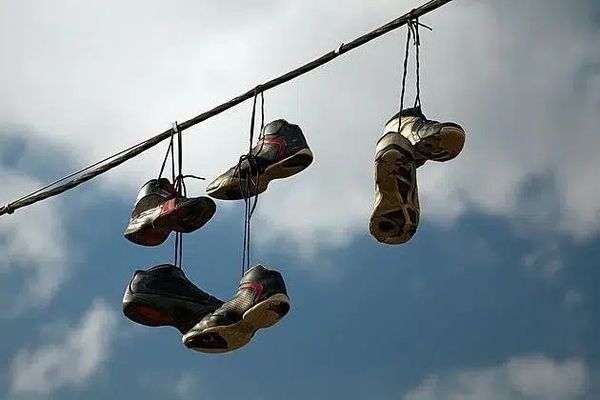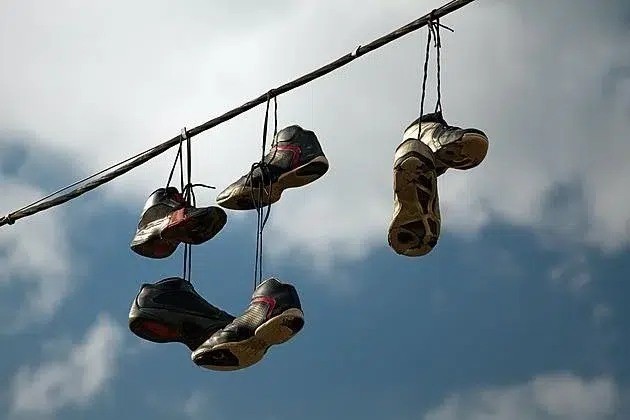Have you ever looked up and seen a pair of sneakers hanging from a power line? It’s a sight that can both intrigue and puzzle us. While not as common as it once was, this unusual phenomenon continues to captivate people’s imaginations. So, what’s the meaning behind it?

Historic Origins and Gang Markings
One theory suggests that this practice has its roots in wartime. Soldiers would dispose of their boots by dangling them from power lines after completing their training or duty. Another notion is that gangs might use this as a way to mark their territory. However, concrete evidence to support this claim is still lacking.
Bullying and Neighborhood Dynamics
There’s another perception that links shoes on power lines to bullying, as often portrayed in popular media. While there may not be substantial evidence to support this idea, it’s hard to completely dismiss the instances where such occurrences have been reported.
The “Just Because” Mentality
Arguably, the most commonly held belief is that people do this just for fun or out of curiosity. It starts with one person acting impulsively, and soon others follow suit, capturing the essence of youthful spontaneity. In a way, it has become a symbol of carefree enjoyment.
Safety Concerns and Responsible Disposal
While the allure of throwing shoes on power lines may seem harmless, it’s crucial to prioritize safety and responsible behavior. Interfering with electrical lines not only endangers the individuals involved but also poses risks to utility workers who are responsible for removing the shoes. Instead, consider donating old sneakers to those in need or properly disposing of them to ensure both personal safety and environmental responsibility.
By understanding the various ideas that underpin this seemingly peculiar act, we gain insight into societal processes and human behavior. So, the next time you see sneakers dangling from a power line, remember to appreciate the intriguing mystery behind it while also considering the importance of safety and responsible actions. Don’t forget to pass on this knowledge to your friends and family!

Leave a Reply